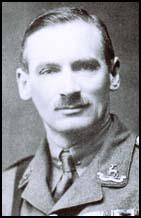Pages in Section 8

Britain's Break with the Palmach
ii. After Dunkirk
iii. OP Final Fortress
iv. Police Involvement in Syria and Iraq
v. The Lehi and Avraham Stern
vi. Britain's Break with the Palmach
By late summer 1942 a German invasion of Palestine seemed certain. The Allied army had moved to North Africa trying to hold back Rommel's army , leaving the police to man the newly-built tegarts. The Palmach were poised for action in guerilla bases. Post and Telegraphs engineers had set up a resistance radio network manned by trained civilian wireless operators. Members of the British civilian population were co-opted into occupying mock army camps on beaches to deceive spies into reporting that Palestine possessed a well defended coastline.
 Then came the miracle. Monty's 8 th army defeated Rommel's Afrika Korps at el Alamein and chased it back across the Mahgrib. Palestine seemed set for a spell of Peace, especially when the Jewish Agency announced they would continue supporting the British for the duration.
Then came the miracle. Monty's 8 th army defeated Rommel's Afrika Korps at el Alamein and chased it back across the Mahgrib. Palestine seemed set for a spell of Peace, especially when the Jewish Agency announced they would continue supporting the British for the duration.
The Palmach, after heroic action both in Syria and in the Northern Desert, looked forward to joining the 8th army as a Jewish Brigade. Instead, the government was concerned that guerrilla members of a paramilitary Jewish group had been trained against British policy and possessed illegal weapons. Every Palmach unit received a wireless message that it was to be disbanded immediately, with lorries being sent to collect them. They were to hand over all arms, both army issue and personal weapons to soldiers of the R.A.O.C. If any arms were missing the police would be ordered to retrieve them.
The Palmach felt betrayed.
A month later, all Palmach members met in secret with the head of the kibbutzim movement and agreed to become Haganah's elite underground unit, working as kibbutzniks for two weeks out of four and spending the other two weeks in military training. The Palmach's goals were two-fold:
- to acquire arms and ammunition to arm all Haganah members
- to bring in to Palestine, both legally and illegally, all Jews fleeing Nazi controlled Europe
The Palmach's first operation was a raid on an allied armoury on Mt Carmel to seize firearms and other military equipment.
The Palmach were not alone in resisting the British. The Irgun and Lehi were even more militant. Throughout the country, Jewish demands for an independent Jewish State, as opposed to the national home in Palestine promised in the Balfour Declaration, became ever more strident.
In response, the war cabinet once again discussed a partition of Palestine but realized, from previous experience, that the plan could only succeed if the Arab portion of Palestine formed a federation with Syria, Iraq and Transjordan.
Lord Moyne, Resident Minister of state in Cairo, was in favour of partition, an Arab Federation and the creation of a Jewish State.
However, Anthony Eden, the foreign secretary, and nearly all British civil and military officials in the Middle East, opposed partition arguing that the Free French would regard British support for an Arab federation which included Syria as a underhand attempt to usurp France's position in the Middle East.
A British employee of the Post and Telegraphs*, who worked closely with the CID, was sent to South Africa to deliver secret documents to Field Marshal Smuts,a signatory of the Balfour Declaration and an ardent Zionist supporter, to bring back in secret his ideas.